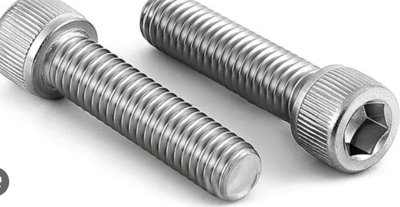
Countless applications rely on socket head screws. These types of fasteners are also lightweight and high-strength. But people often ask, are they reusable? Learning what makes them reusable saves time and money while keeping projects on the right track and avoiding disasters.
What Is a Socket Head Screw?
Socket head screws are preferred in assemblies where space is limited and a strong clamping force is required. This feature allows for a solid, gripping grip during installation. Socket head screws are ideal for applications that require a flush finish, which is why they are frequently used in machinery, automotive, and construction.
We also make these screws from various materials, including stainless steel, alloy steel, and titanium. These materials come with their advantages and disadvantages. For instance, stainless steel offers corrosion resistance, and alloy steel provides strength. The reusability of the fastener itself is therefore highly dependent on the chosen material.
Factors That Affect Reusability
The reusability of socket head screws depends on various factors, including the material's strength, frequency of use, and stress tolerance. Regular exposure to harsh conditions such as extreme temperatures or corrosive substances can deteriorate the screw's material, making it last longer.
Mechanical stress during installation and removal further affects its condition. If the screws are excessively tight, they will strip the threads and become unusable. Applying incorrect tools or methods can also damage the screw. The above procedure ensures their usability by correctly handling and installing them.
Material Considerations
Reuse potential also depends significantly on material choice. For example, stainless-steel screws can offer greater corrosion resistance, which may, in turn, lengthen their service life. However, they may not be as strong as their alloy steel counterparts in tensile strength, making them great for jobs with high-stress applications.
Titanium screws are lighter and resistant to rust, but they may not be appropriate in all situations, making them even less attractive. This high cost makes titanium screws an even less appealing option for projects that require frequent replacement. The project helps select the right material while minimizing budget, strength, and reuse.
Appropriate Use and Installation
As long as you don't strip or mishandle socket head screws during installation, they remain reusable. Having an appropriate set of tools and techniques to inflict minimal harm when applied. A hex key or Allen wrench fits the recessed hexagonal drive best, minimizing the risk of stripping.
Using specified torque values avoids overtightening and potential thread damage. You can use a torque wrench that gives you the exact amount of power for tightening it up and saves the screw from breaking. For best performance, it is also ideal to have both the screw and mating surface clean before installing.
Effects of Environmental Conditions
How reuse of socket head screws is affected by environmental conditions. Moisture, saltwater, or other chemicals can speed up corrosion and be especially aggressive for less durable materials. The right screw coatings or materials increase durability for demanding environments.
Moreover, temperature variation is another problem. Extreme heat or cold can cause the screw to expand or contract, changing its fit and effectiveness. These factors must be considered while planning this stage; this information will help select fasteners that resist weather stress.
Application-Specific Considerations
The reuse of socket head screws must be evaluated on a per-application basis. Penny-for-penny lock washers or thread-locking compounds are great ways to hold nuts and bolts in place and prevent loosening in high-vibration environments. These extra measures prolong the life of the screws.
Any aesthetically sensitive part (outside or visible) must maintain a pleasing, sparkling color. Timely checkups and cleaning will ensure that none of the wear or corrosion affects the screw's appearance and prevents it from seeing soil.
Material Choice and Maintenance
One significant factor to consider is the project’s specific requirements. Sensitive equipment and electronics can all benefit from non-magnetic materials to prevent interference. Such considerations are vital and must be accounted for when choosing the relevant screws.
The other issue that should not be ignored is the cost considerations, which are often the primary driving force behind the decisions about reusability. On one hand, reusing the fasteners is by far the most beneficial decision in terms of savings. However, such choices and cost considerations are typically short-sighted and necessitate a more careful approach. Namely, if the project is compromised due to the lack of quality or the screws are simply not replaced after bearing the load, this could lead to subsequent failures.


Post a comment as Guest
Report
Watch this discussion.
(0) comments
We welcome your comments
Log In
Post a comment as Guest
Keep it Clean. Please avoid obscene, vulgar, lewd, racist or sexually-oriented language.
PLEASE TURN OFF YOUR CAPS LOCK.
Don't Threaten. Threats of harming another person will not be tolerated.
Be Truthful. Don't knowingly lie about anyone or anything.
Be Nice. No racism, sexism or any sort of -ism that is degrading to another person.
Be Proactive. Use the 'Report' link on each comment to let us know of abusive posts.
Share with Us. We'd love to hear eyewitness accounts, the history behind an article.